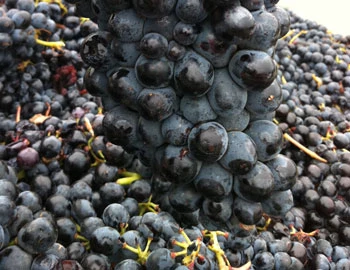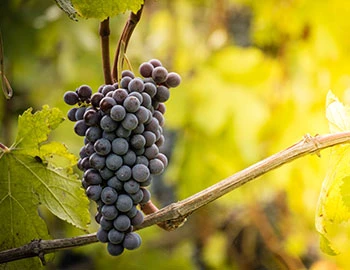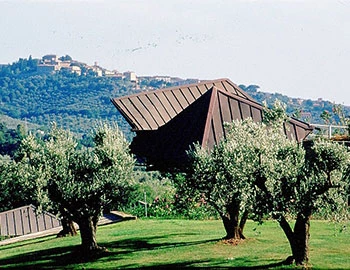
Costa Russi 2009
DOC Langhe Nebbiolo, Angelo Gaja, 750 ml

| Grape variety: | Nebbiolo, Barbera |
| Producer: | Angelo Gaja |
| Origin: | Italy / Piemont / Barbaresco |
Description
Intense purplish red colour with lovely dark hue. Delicate aromas a with a touch of herbs and liquorice followed by a pulpy fruitiness. Firm and imposing with a clean, bold structure. Integrated tannins lead to a complex finish. A wine of great balance and great ageing potential, this style is eternal with a slow evolution of flavours and structure.
Attributes
| Origin: | Italy / Piemont / Barbaresco |
| Grape variety: | Nebbiolo, Barbera |
| Ripening potential: | 5 to 20 years after harvest |
| Drinking temperature: | 16 to 18 °C |
| Food Pairing: | Brasato di manzo al Barolo, Châteaubriand, Filet Wellington, Rabbit ragout with olives, Saddle of lamb fillet with herb jus, Wild fowl, Tagliatelle al tartufo |
| Vinification: | fermentation in steel tank |
| Harvest: | hand-picking, selecting the grapes (by hand) |
| Maturation: | in large wooden barrel/foudre, in new barriques |
| Maturation duration: | 24 months |
| Volume: | 14.5 % |
| Note: | Contains sulphites |
Barbera
The all-around culinary companion
The Barbera grape is one of the cornerstones of the Piedmont. It lends its name to three cultivation areas: Barbera d’Asti, Barbera d’Alba and Barbera di Monferrato. There are fierce rivalries. Thus the vintners of Asti assert that their Barbera is better than those from Alba, because the best sites in Alba are reserved for Barolo and Barberesco. The truth is, there are all kinds of Barbera: young and fruity, ripe and complex, simple or sophisticated. The best representatives are ruby red with pure, sweet cherry fruit, soft body and fresh acidity. They are fantastic culinary companions: there is scarcely any Italian dish with which they do not fit. The variety is well-distributed, thanks to the Italian emigrants in California.

Nebbiolo
Proud Piedmontese
It’s the king of Piedmont: the most sought-after wines come from Nebbiolo. It reaches its highest expression in Barolo and Barbaresco. Its acidic, tannin-rich wines in its youth are often unapproachable. With maturity, however, it develops an ethereal bouquet of cherry, liquorice, violet and rose, as well as truffles, tar and forest floor. Nebbiolo takes its name from the Italian “Nebbia”, meaning fog. This not because of the weather in Piedmont, but due to the whitish film on the ripe, red berries. It was first mentioned by this name in the 13th century. Much like the Pinot noir, Nebbiolo can precisely reflect its terroir, but only if it is really pleased with where it is. It likes cool climates and calcareous soils. Attempts have been made to transplant it, for example, to California, but the results were disappointing. It feels most comfortable in the hills of northern Italy.

Italy
Italy – Where wine is a way of life
The Italian wine regions are extremely diverse, and this is made clear in their wines. Established varieties such as Merlot, Syrah, and Sauvignon can be found on just 15 percent of the total vine growing area. The remaining 85 percent is reserved for autochthonous, indigenous varieties. More than 2,000 different grape varieties are grown under diverse conditions and pressed with various techniques into wines that reach the top tier of the international wine market.


